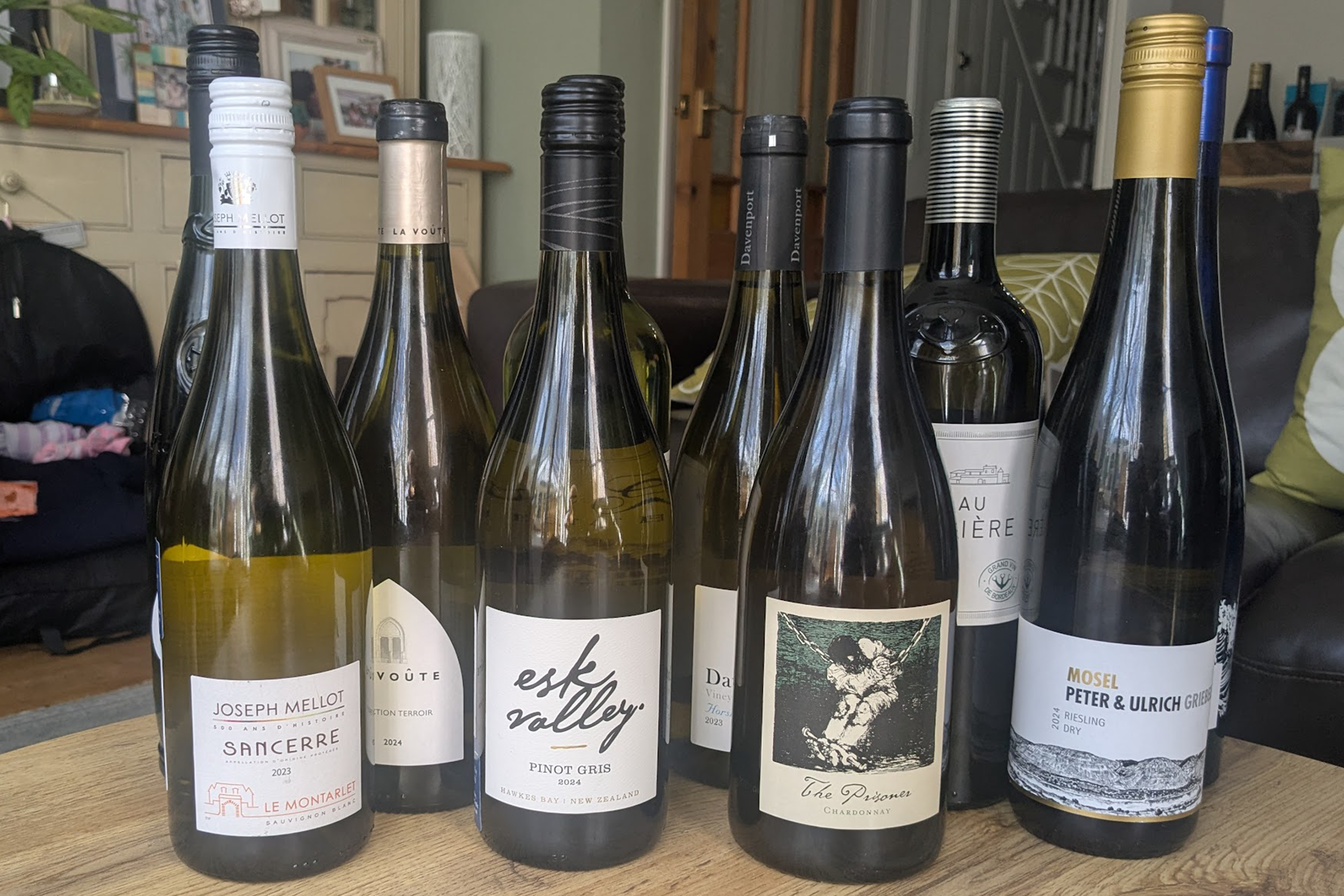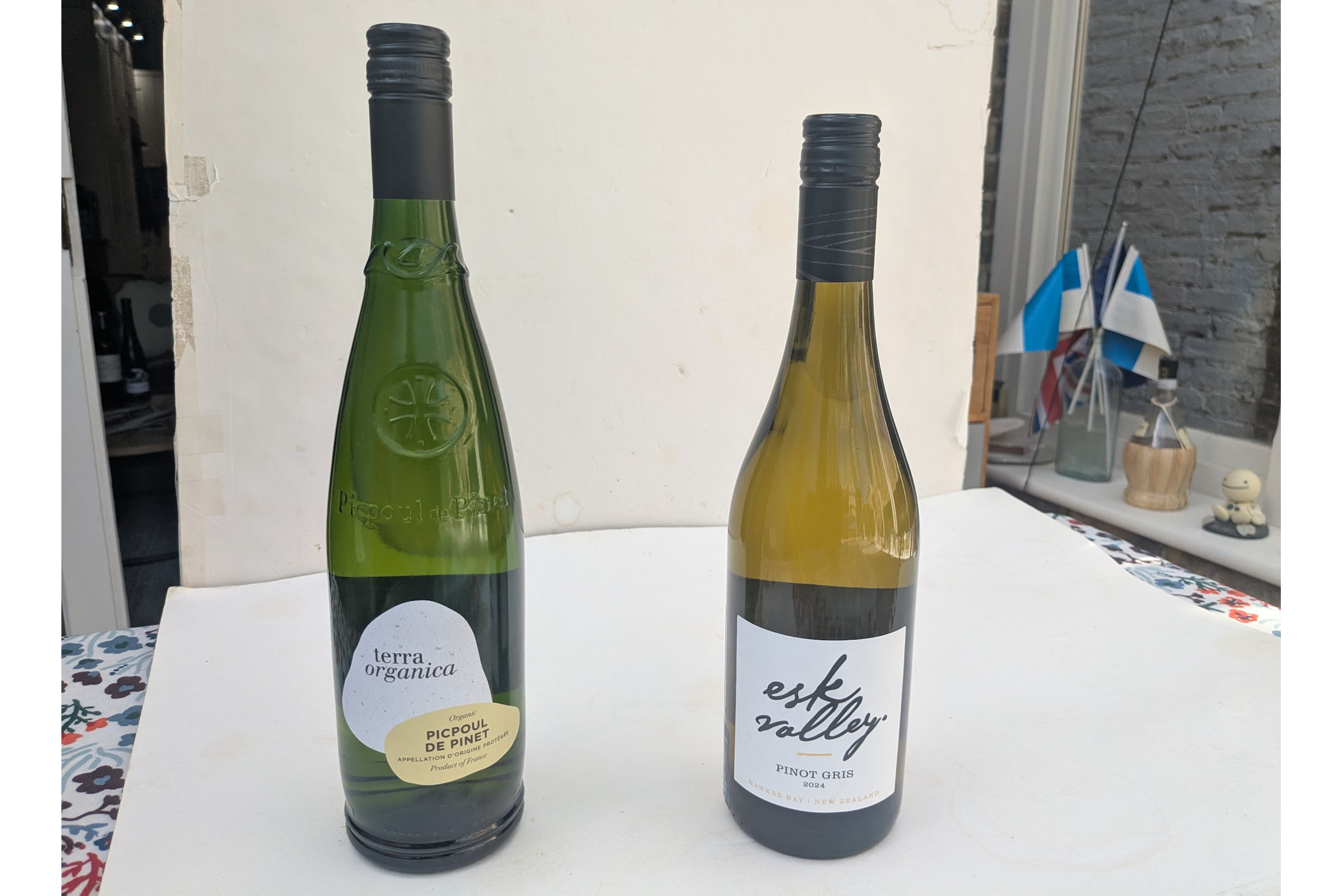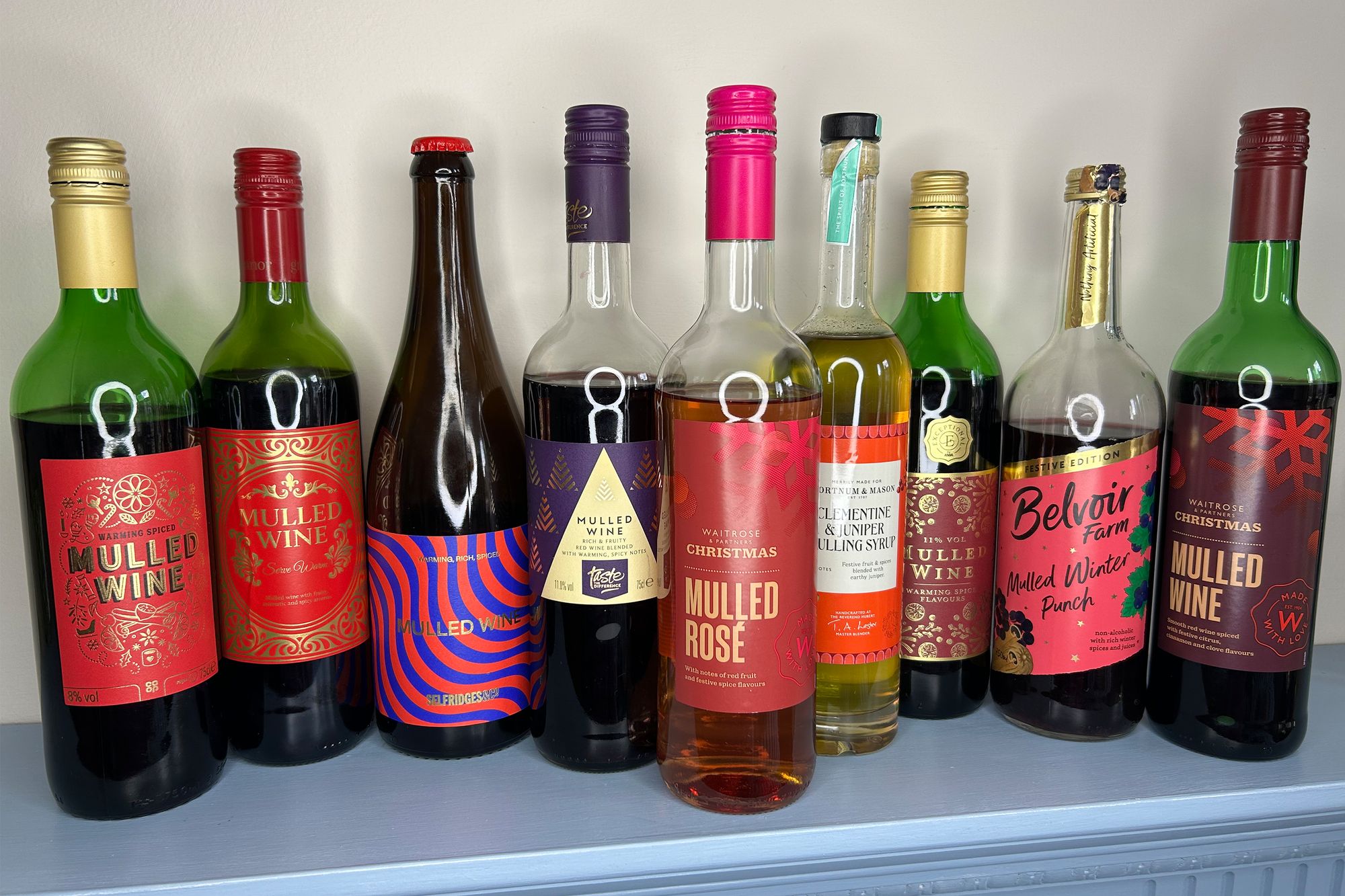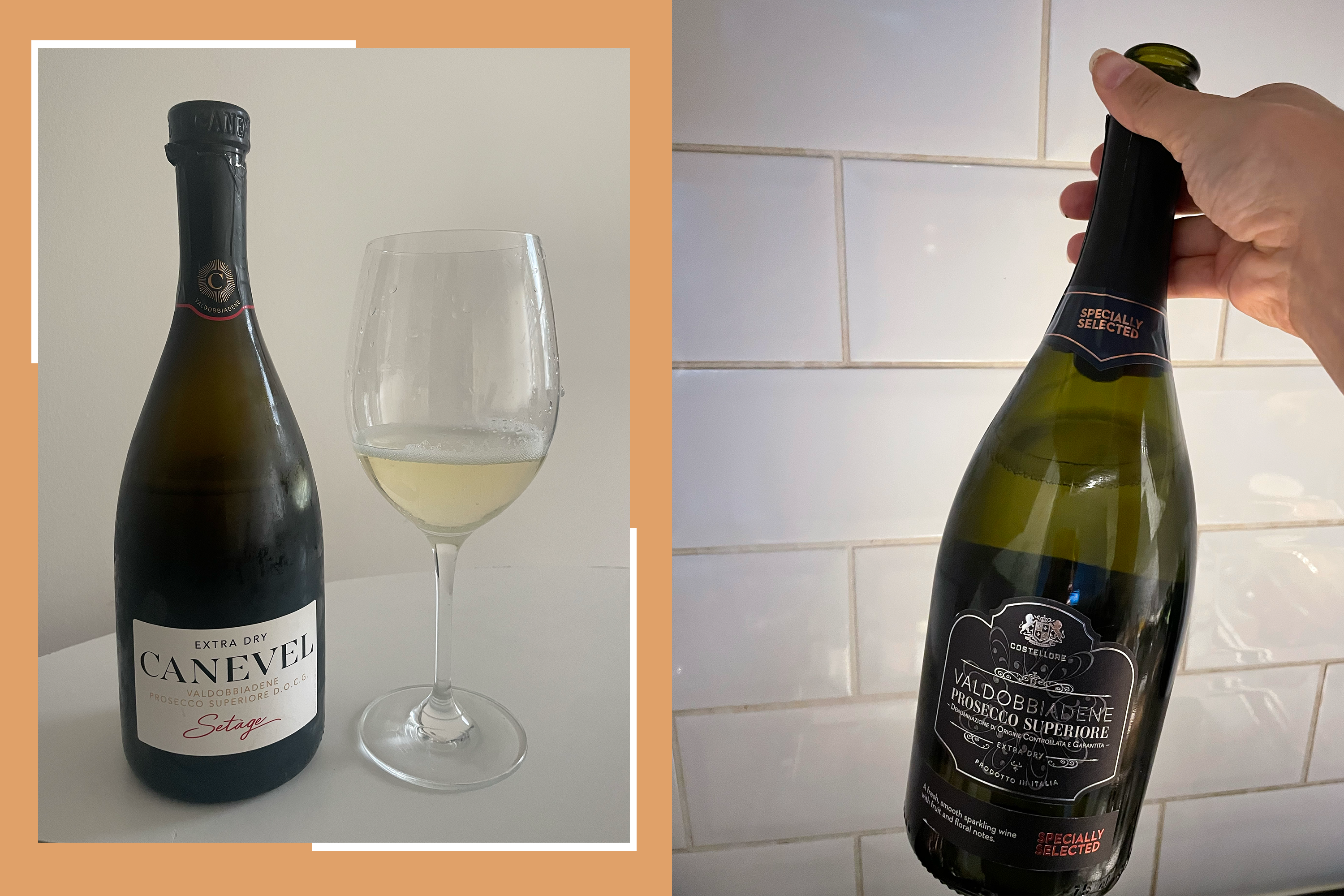The Independent's journalism is supported by our readers. When you purchase through links on our site, we may earn commission. Why trust us?
10 best white wines for sipping this festive season and beyond
Glasses at the ready, our expert has selected the best white wines to enjoy right now

Historians tell us that wine – some of it white, some of it red – has been with us since 6000BC. In Ancient Greece, Hippocrates – their equivalent of the TV doctor – prescribed “vinous white wine” to his patients, presumably as an accompaniment to a light fish dish.
Nowadays, white wine is produced and enjoyed throughout the world. But what’s the best? What should we be looking out for? And which of the millions of bottles of still white wine produced each year deserve our attention?
To help out, I’ve been investigating wines made mainly from the classic varieties of white wine grapes – chardonnay, sauvignon blanc, chenin blanc, sémillon, pinot gris and riesling, plus a few others that are also well worth investigating. Like the people who drink them, the wines come from both the old world and the new but what they have in common is a quality that can enhance a meal or brighten a dull day. Enjoy.
The best white wines for 2025 are:
- Best overall – Joseph Mellot sancerre le montarlet 2023: £25, Tesco.com
- Best budget buy – Esk Valley Pinot Gris 2024: £13.60, Vinvm.co.uk
- Best Chardonnay – The Prisoner carneros Chardonnay 2021: £42, Winedirect.co.uk
- Best Riesling – Peter & Ulrich Griebeler dry Riesling 2024: £14, Majestic.co.uk
- Best party wine – Terra Organica Picpoul de Pinet 2024: £11.50, Amazon.co.uk
How I tested

The majority of the wines were tasted after being slightly chilled and by themselves in glasses that could release the full aroma and concentrate the flavours and the taste of the wine. During testing, I considered the taste, including the body, depth and complexity of each, what would pair with each and each bottle’s value for money. You can read more about my in-depth testing process at the bottom of this guide.
1Joseph Mellot sancerre le montarlet 2023

- Best White wine overall
- Size 75cl
- ABV 13%
- Why we love it
- Crisp and elegant
- Citrus and peach flavours
- Take note
- Not as buttery as chardonnay
Even the name sounds beguiling. Like the historic region in the Loire Valley in France it comes from, sancerre is a crisp white wine that’s enchanting and dazzling in equal measure. It also introduces us to the king of white wine grapes – sauvignon blanc.

New Zealand may make the running in the sauvignon blanc stakes but here in its homeland you can’t escape the heritage and the history on an estate that was established in 1513. It’s a perfect example of the winemaker’s art with delightful lemon and peach flavours allied to an almost chalky minerality. Drink it by itself or enjoy it with seafood and salads.
2Esk Valley Pinot Gris 2024

- Best Budget white wine
- Size 75cl
- ABV 13.5%
- Why we love it
- Ripe orchard flavours
- Honeyed appeal
- Not too heavy on the pocket
- Take note
- Perhaps more of a summer drink
It’s time to introduce another classic white wine grape. Pinot gris may be better known in the UK under its Italian name pinot grigio but this example from Hakes Bay in New Zealand keeps the French name and adds a more than a modicum of New World appeal.

We’re back in the orchard flavour-wise, with ripe pears and honeyed notes supplemented by soft, stone fruit and hints of spice. Again, it’s an ideal partner for a light fish dish or as a welcome accompaniment to a good-quality soft cheese.
3The Prisoner carneros Chardonnay 2021

- Best Chardonnay white wine
- Size 75cl
- ABV 14.5%
- Why we love it
- Rich and smooth
- Baked apple appeal
- Take note
- A bit pricey for casual drinking
Along with sauvignon blanc, it’s time to make space for the other classic white wine grape – chardonnay. Away from its French homeland, chardonnay can now be found all over the globe.

This example, from California’s Napa Valley, is as welcome as mum’s apple pie, which is appropriate since that baked apple flavour is one of chardonnay’s most appealing traits. You can taste it here in full, along with hints of toasted oak, vanilla and pineapple. Helpings of viognier and gewürztraminer grapes are also blended in to give the wine that ripe, full-flavoured charm.
4Peter & Ulrich Griebeler dry Riesling 2024

- Best Riesling white wine
- Size 75cl
- ABV 13%
- Why we love it
- Dry and crisp
- Terroir-driven minerality
- A German classic
- Take note
- May not be dry enough for some
A drum roll and a round of applause please for the third of the world's three great white wines, the German riesling. Made from an aromatic German grape that is now grown around the world, this example is from its true home, the steep vineyards of the Mosel region.

A blend of riesling grapes from different growers, it's aged on the lees to protect and enhance that aroma-driven fresh and floral flavour with a blossoming minerality that tells you where it comes from with the first sip. Hugely drinkable, it’s a perfect aperitif or a welcome addition to a seafood meal or a salad.
5Mar de Frades Albarino 2024 rias baixas

- Best Spanish white wine
- Size 75cl
- ABV 12.5%
- Why we love it
- Zesty flavours
- Welcome salinity
- Take note
- Has a notable acidity
If all you know of Spain is its red rioja or sparkling cava, prepare to be surprised and delighted. Albarino is a white wine grape native to Galicia, in the northwest of Spain and northwest Portugal.

It’s an area bound by the Atlantic and prone to more than its fair share of rain. Out of that, however, comes a zesty, aroma-rich wine with a seaborne but very welcome acidity. If you're fond, say, of sauvignon blanc, then give this a try, you won't be disappointed.
6Terra Organica Picpoul de Pinet 2024

- Best Party white wine
- Size 75cl
- ABV 12.5%
- Why we love it
- Fresh and zingy
- Extremely drinkable
- Organic and vegan
- Take note
- May be a little bland for some tastes
The story of Picpoul de Pinet sounds like a Hollywood feel-good movie. A small appellation from the Languedoc region of France comes out nowhere to conquer the world or more specifically the UK which now takes one third of its total production.

So, what’s so good about it? Well, it's fresh and bright with zinging apple and citrus flavours, and a mouthwatering salty minerality that mirrors the one found in the Mar de Frades Albarino. Easy to drink, easy to enjoy and easy to spot on the shelf in its specially designed “Neptune” bottle – a summer barbecue favourite that can be enjoyed all the year round.
7Fraser Gallop Estate parterre semillon Sauvignon 2022

- Best Australian white wine
- Size 75cl
- ABV 12.5%
- Why we love it
- Creamy texture
- Citrus flavours
- Take note
- Fermented with wild yeast
- Don't drink it yet if you want the full flavours
Here's a blend of sauvignon blanc with another classic white wine grape, semillon. Big in France, it was discovered that this particular blend also suited the Australian terroir, where it developed a beautifully creamy and textured lemon-lime flavour with hints of lemongrass and tropical fruits such as papaya and guava.

If you can bear not to open it straight away it will benefit from being laid down for a few more years, allowing those fabulous flavours to become even more mouth-wateringly attractive.
8La Vouté selection terroir 2024

- Best Grand cru-style chardonnay
- Size 75cl
- ABV 13.5%
- Why we love it
- Elegant and fresh
- Ripe stone fruit flavours
- Rivals more expensive Burgundies
- Take note
- May not be for those who prefer wines on the crisper side
Burgundy may be the home of the grand crus, the world’s most renowned and expensive white wines, but winemaker Mark Hoddy has managed to craft an elegant and mineral-fresh, Burgundy-style chardonnay near Limoux in southern France.

As with its much more expensive rivals, the wine is barrel-fermented, lees-stirred and aged in fine French oak. The result is a rich and textured white wine with oodles of ripe stone fruit and toasty vanilla flavours complemented by hints of spice and lemon. In fact, grand cru classiness at a much modest price.
9Château La Clarière blanc 2023

- Best Côtes de Bordeaux white wine
- Size 75cl
- ABV 13%
- Why we love it
- Rounded citrus flavours
- Toasted vanilla notes
- A trophy and medal-winner
- Take note
- May be too oaky for some
It would be fair to say that winemaker Tony Lathwaite knows a thing or two about Bordeaux wine. He founded Bordeaux Direct in 1969 and then went on to create the UK company that bears his name. His Côtes de Bordeaux estate at La Clarière in Castillon had been all about reds.

But then he produced oak-fermented, lees-aged white that’s a blend of bold sauvignon blanc and the richer sauvignon gris – and has reaped the rewards it brings, including a trophy and 18 gold medals. If you’re expecting lots of citrussy, fruit forward flavours along with vanilla notes and hints of oak and spice, you won’t be disappointed. It’s a wine to savour and enjoy with fish or white meat.
10Davenport Vineyards Horsmonden dry white 2023

- Best English white wine
- Size 75cl
- ABV 11%
- Why we love it
- Soft fruit flavours
- Freshly baked bread aroma
- Organic and naturally fermented
- Take note
- Lacks that continental flair
A flagship English wine from a Kent vineyard that prides itself on its organic roots. This is a balanced blend of (and wait for it, this quite a mouthful) bacchus, ortega, faber, siegerrebe and huxelrebe grapes, which end up producing what many see as one of the finest English wines.

Hugely fragrant with citrus and soft fruit notes, there’s a tantalising yeasty, freshly baked bread aroma too, which makes this wine such a standout. Its organic production means that it was naturally fermented with no added yeasts.
What is the best white wine?
There are enough white wines to suit any taste, if it's buttery and smooth you're after try the The Prisoner chardonnay or the Davenport Vineyards Horsmonden. If you prefer something that's zingier and crisper, then sample the Peter & Ulrich Griebeler Dry Riesling or the Mar de Frades Albarino. For something that has the whole package then the Joseph Mellot Sancerre Le Montarlet comes out on top – fruit-forward flavours and refreshing minerality help make it our best buy.
How I selected the best white wines
To narrow down my selection of the best white wines, I tasted numerous bottles over the course of several weeks, taking the following criteria into consideration:
- Taste: I noted the depth, body, complexity and overall mouthfeel of each white wine.
- Value for money: I considered the price of each bottle against the quality of the wine.
- Pairings: As well as sampling the wines on their own, I assessed how well they paired with food.
Why you can trust IndyBest reviews
John Clarke draws on his lifelong passion for wine to compile reviews and guides on the wide range of wines available to consumers. He started writing wine and spirit reviews for The Independent in 2015, and has discussed everything from ports and whisky for IndyBest. He put extensive wine knowledge to good use when testing a wide range of wines for this review, offering his honest opinions on which white wines are worth your money.
Thirsty for more? Read our edit of the best box wine for taste and eco-friendliness















Bookmark popover
Removed from bookmarks